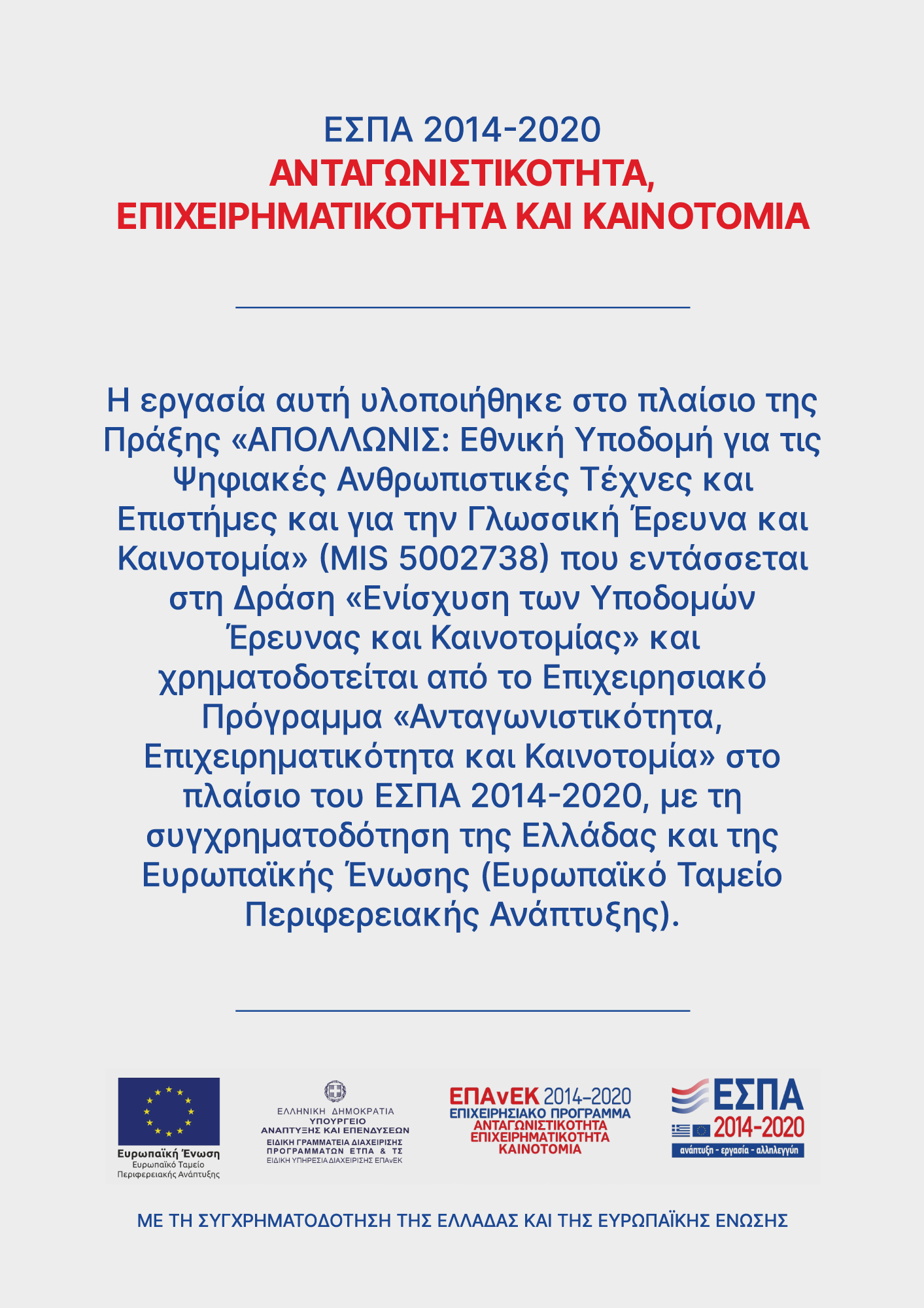The way of working in the Humanities undergoes a digital transformation. The Greek Infrastructure for Digital Arts, Humanities and Language Research and Innovation “APOLLONIS” and the European research infrastructures DARIAH for the Arts and Humanities and CLARIN for Language Resources and Technology are important facilitating agents of this transformation in Greece and in Europe respectively. The transformation has been forcefully accelerated by the recent pandemic and, as some early research initiatives[1] are indicating, readiness for acceptance of digital work practices appears to rise. Also rising is the need to delve deeper into the nature of digital methods and practices and their impact on research.
The COVID-19 outbreak and the restrictions it imposed brought about new needs in the Humanities research and pedagogy, introducing new modi operandi, accelerating a digital transformation that has been under way for decades in the Digital Humanities, but also demonstrating the gaps that remain. Funded by the Hellenic Foundation for Research and Innovation (HEFRI), the project Digital Landscape (The emerging landscape of digital work practices in the Humanities in the context of the European projects DARIAH and CLARIN, 2022-2024), is capturing the impact of the pandemic in the way we work in the Humanities and Social Sciences in Greece, to better understand current trends and needs, and plan effectively for the future. To this end, we are employing a mixed methodology. The tools to collect evidence-based information are: a) a communities web-survey and b) Humanities and Social Sciences focus groups. The report that will result from the analysis of these data will be used to support the strategic vision and inform the future planning of the APOLLONIS research infrastructure.
The present proposal of a poster will present the findings of the web survey, in which we analyzed digital research practices, tools and interaction with digital content to gather data from the humanities and social sciences research community in Greece, focusing also on the impact of COVID-19 on digital humanities research and practice.
Based on past experience and data collected in the context of European Research Infrastructures in the Arts, Humanities and Language Technologies and Social Sciences such as Preparing DARIAH, DARIAH-EU, CLARIN-EU, EHRI (the European Holocaust Research Infrastructure), ARIADNE (Advanced Research Infrastructure for Archaeological Data Networking in Europe), SSHOC, SoDaNet and Europeana Cloud, we designed, disseminated and implemented the web survey which gathered almost 400 responses which have been analysed and discussed in comparison with past trends in Greece.
In this poster we propose that we present these findings and prompt discussions with our European colleagues.
[1] E.g., “DH in the time of Virus: a Twitter Conference”, 02.04.2020, “DHgoesViral” workshop, 26.04.2021.
